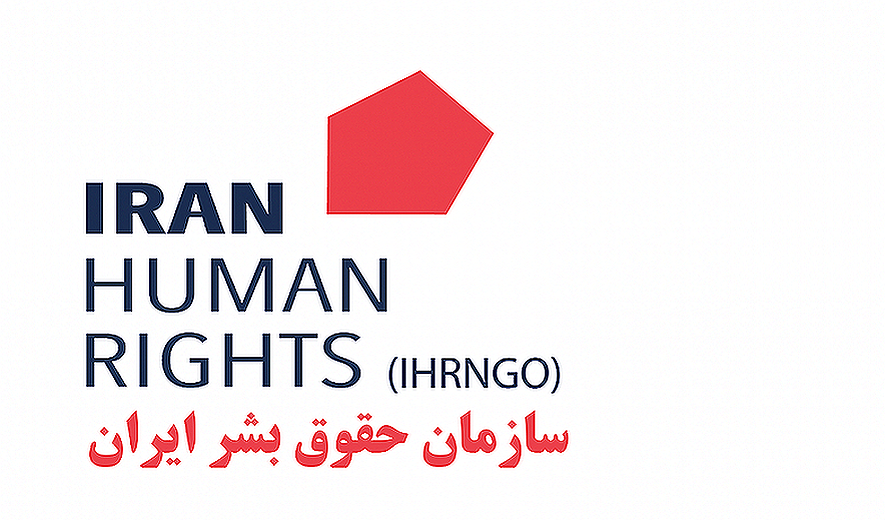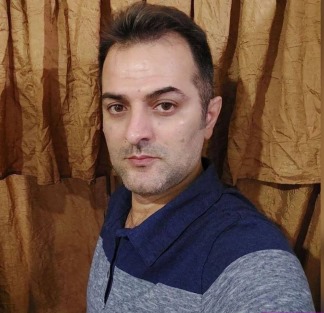Kurdish Political Prisoner Ghasem Abasteh Executed After 14 Years; 6 Co-defendants at Risk of Execution

Iran Human Rights (IHRNGO); November 6, 2023: Ghasem Abasteh, a Kurdish-Sunni political prisoner sentenced to death without due process or a fair trial for charges of moharebeh (enmity against god) and efsad-fil-arz (corruption on earth) through “armed resistance and membership in a Salafi jihadi group,” was executed in Ghezel Hesar Prison after spending 14 years on death row.
Emphasising the inhumanity of the death penalty, Iran Human Rights condemns Ghasem Abasteh’s death sentence based on torture-tainted forced confessions and execution. Director, Mahmood Amiry-Moghaddam said: “Ghasem Abasteh’s execution has no legal basis even according to the Islamic Republic’s own laws and is an extrajudicial state murder. Ali Khamenei and the repressive institutions under his command must be held accountable for this crime.”
“The judiciary of the Islamic Republic demonstrates even greater disregard for the law in cases involving ethnic minorities, where they make no effort to even maintain a lawful appearance,” he added.
According to IHRNGO statistics, more than 90% of those executed for security-related charges (moharebeh, efsad-fil-arz and baghy) in the last 13 years were Kurdish (51%), Baluch (28%) and Arab (15%).

According to information obtained by Iran Human Rights, Kurdish-Sunni political prisoner Ghasem Abasteh was executed in Ghezel Hesar Prison on 5 November. Iran Human Rights previously reported his transfer to solitary confinement and warned of his imminent execution.
Ghasem Abasteh was sentenced to death for charges of moharebeh (enmity against god) and efsad-fil-arz (corruption on earth) through “armed action and membership in a Salafi jihadi group” in a case with seven defendants by Branch 28 of the Tehran Revolutionary Court in February/March 2016. One of their charges related to the death of a Sunni cleric named Mamousta Abdolrahim Tina.
The sentence was overturned by the Supreme Court and sent to Branch 15 of the Tehran Revolutionary Court for retrial. On 17 June 2017, they were resentenced to death by the Court presided over by “death judge” Salavati. Their death sentence was upheld by the Supreme Court 3 February 2020.
One of Ghasem Abasteh’s relatives told IHRNGO: “The seven prisoners were physically and mentally tortured to extract forced confessions. Despite years passing, the signs of torture were still visible on Ghasem’s body.”
Ghasem was arrested in January 2010 along with Anwar Khezri, Davoud Abdollahi, Farhad Salimi, Khosro Besharat, Kamran Sheikheh and Ayoub Karimi. They were interrogated in Urmia before being transferred to Evin Prison in Tehran. They were subsequently transferred to Gohardasht (Rajai Shahr) Prison in Karaj where they were held until its closure in August when they were transferred to Ghezel Hesar Prison.
An informed source told Iran Human Rights: “These seven prisoners were expelled from the Mahabad Salafi group for drinking alcohol exactly 8 months prior to their arrest. They were accused of killing Mamousta Abdolrahim Tina after their expulsion.”
“Ghasem Abasteh and the other six men repeatedly denied any involvement in Mamousta’s death and said they’d already been expelled at that time. The only reason we met with them is the 1 million tomans they paid. In prison, they weren’t even allowed to pray next to the Salafi prisoners because they were completely rejected by this group. Ghasem was the last defendant in the case, so the other six men’s families are worried that they may be executed soon,” the source added.

